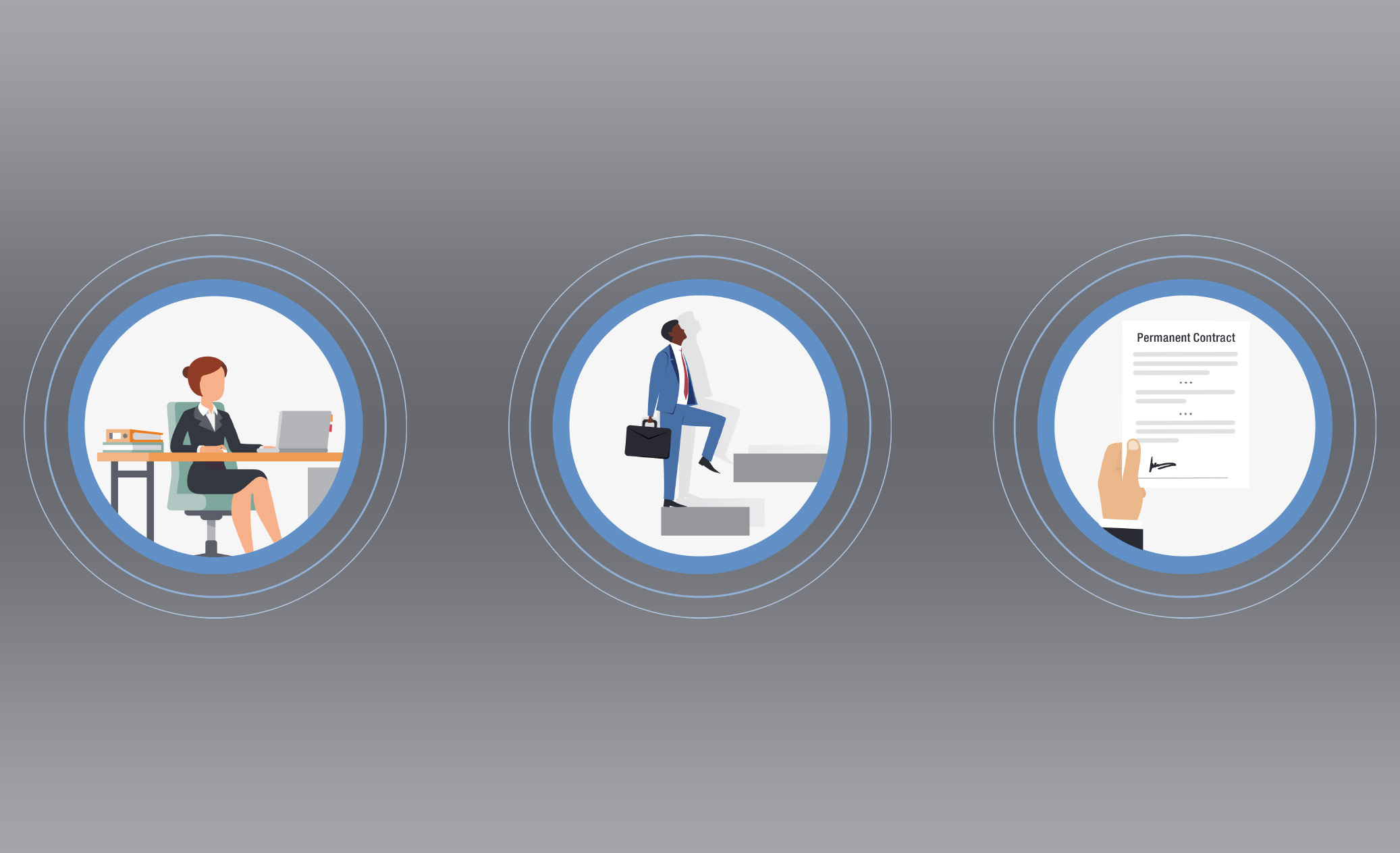
Businesses need new ways to get work done. Business models are being transformed, and skill requirements are changing quicker than ever before. Eight years ago, there were nearly six unemployed candidates for each job vacancy in the UK. Now, there are less than two. In this tight labour market, characterised by record low unemployment, employers need to find ways to engage talent, if they want to secure the talent their business needs.
Alternative work models are one way that employers are doing this. While full-time, permanent jobs still dominate the labour market, employees increasingly want to work in non-traditional ways – such as contracting, gig working, project work and portfolio careers. In fact, 87% of workers say they would consider working in a non-traditional way in the future. Organisations that are responsive to what people want will find they are better able to find and secure the best.
As well as opening new talent pools, non-permanent workers can give organisations more flexibility. The workforce can be easily flexed up and down, in line with organisation requirements. Specialists can be engaged on a short-term basis for specific business requirements, before moving on to opportunities elsewhere. We’re living in uncertain times, and the ability to quickly evolve has never been more valued.
Nonetheless, the permanent workforce still has an important role to play. Permanent workers give organisations stability, and reduced employee churn can reduce risk during project implementation. What’s important is that organisations find the right balance between permanent and non-permanent workers. Rely solely on permanent workers, and your business won’t be flexible enough to adapt to the changing world of work. Focus too much on non-permanent workers, and your business will soon lack the stability it needs to drive long-term growth. Think like Goldilocks, and look for a workforce mix that’s ‘just right’.
Employed Consultants: Bridging The Permanent/Non-Permanent Divide
Employed Consultants are one answer. These are workers who are engaged permanently by ManpowerGroup, and then placed on assignment to fill short-term or project roles within our clients’ organisations. You’ll have a consistent and stable team for as long as you need it. And when your requirements come to an end, they’ll move into another opportunity elsewhere.
Since they’re our permanent employee, there’s no issues where IR35 is concerned and co-employment risk is removed too. We’ll take care of their training and development needs, as well. Employed Consultants are often more cost effective than contractors, too – typically by 10-20%. What’s more, since they have the mindset and attitude of a permanent worker, there’s less contractor churn and reduced project risk.
This model isn’t just effective from a business perspective. It makes sense from a worker perspective, too. Our Employed Consultants have the opportunity to work across a range of different organisations, industries and projects; building their skills and experience in the same way as a contractor. But since they have a permanent contract of employment, they also have stability, certainty, and an extensive benefits package. It’s a win-win approach.
Digitisation, machine learning, aging and shifting populations, polarisation, consumerisation, geopolitical uncertainty and more are transforming business models. But with the right workforce mix – one that blends the stability of permanent workers, with the flexibility of non-permanent employees – organisations can build resilience for less predictable futures.
To learn more about the role that Employed Consultants could play in your workforce strategy, download our brochure or contact us for more information.